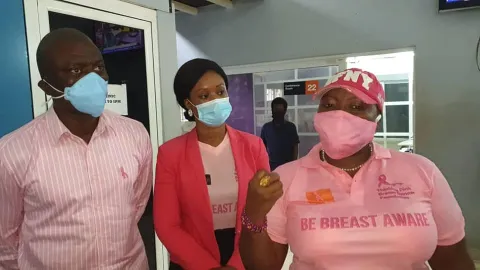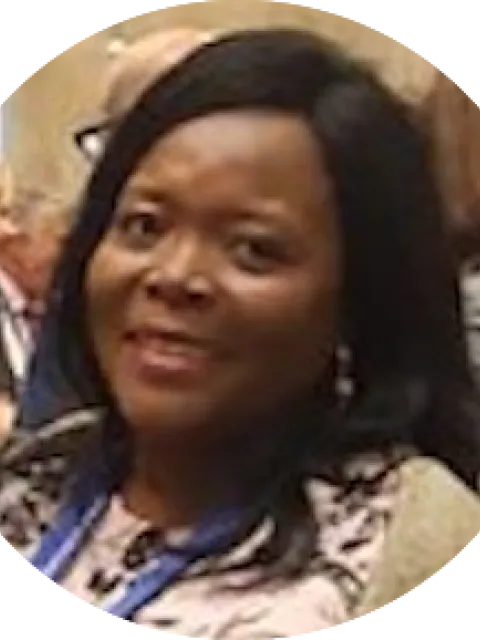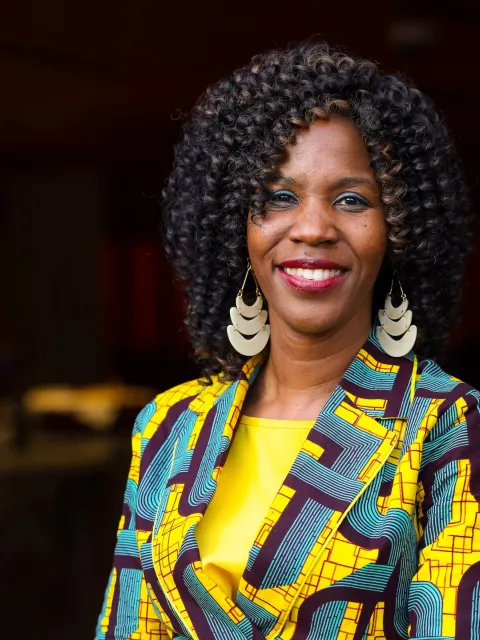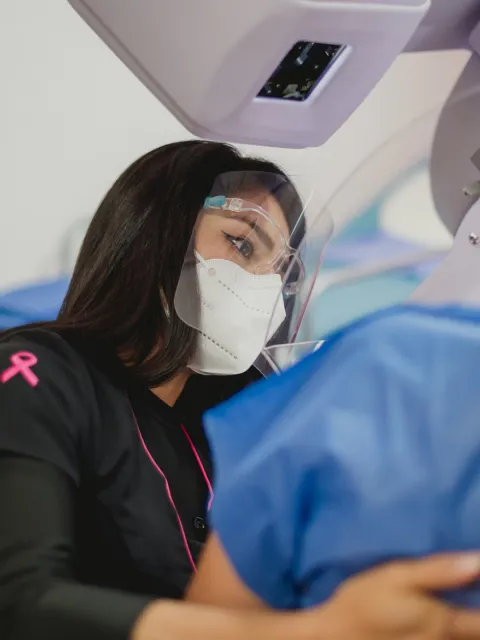How breast cancer patients in Sierra Leone are affected by COVID-19

Thinking Pink Breast Cancer Foundation is one of the only acting organisations in Sierra Leone working on raising awareness about breast cancer and bringing treatment to all Sierra Leoneans. However, the country has only one oncologist and only one forensic pathologist, Dr Simeon Owiz Koroma, who volunteered to see all of Thinking Pink’s patients free of charge in the past. This has taken a huge financial burden off the Foundation but the cost of treatment is often far more than what the average Sierra Leonean can afford.
Mrs Cremelda Parkinson Pratt, who founded Thinking Pink Breast Cancer in 2008, and rebranded in 2012 explains the work and progress of the Foundation in reducing the burden of breast cancer, the additional challenges caused by COVID-19 and the Foundation has adapted.
Sierra Leone lacks proper infrastructure for cancer care. Data provided by the oncology department at Connaught Hospital in Freetown shows that in the period 2016-2019, 2,800 cancer cases were recorded, with 50% diagnosed with late-stage breast cancer and 30% resulting in death.
Our Foundation emphasises the importance of early detection through media engagement in schools, universities, market places and corporate sensitisation so that women understand what signs and symptoms to look for. We teach them the importance of early detection and how to conduct self-examination. If breast cancer is diagnosed early, we pursue early intervention which are Lumpectomy, Histopathology and psychosocial support to prevent it from advancing to the next stage.
People seeking to use our services access the Foundation’s clinic from 9am to 4pm on daily basis. They are met with friendly nurses who welcome, register and conduct clinical breast examinations. In the event of any abnormalities, they are referred to our partner Doctor the Oncologist for further diagnoses and or treatment. For treatment pathway, we source funds for the financially challenged patients and also teach them healthy eating and lifestyle changes through counselling sessions. We engage in a systematic treatment pathway which includes Pre and Post surgery. We also conduct free breast screening.
We have succeeded in having patients attend every Friday the oncology clinic at the Connaught Hospital, where the only Surgical Oncologist in-country and the only Oncology nurse and their team assess patients for their treatment pathway and general wellbeing. We engage in a systematic treatment pathway which includes pre- and post-surgery. We source funds for the financially challenged patients and also teach them healthy eating and lifestyle changes through counselling sessions.
We also now administer chemotherapy in-country and there is now a functioning palliative care unit available, but patients still have to travel Ghana or India to receive Radiotherapy treatment.
The government is still in hesitant because of inadequate resources, though they provided scholarships for 10 medical workers to specialise in oncology through a scholarship programme facilitated by the First Lady of Sierra Leone, Mrs Fatima Maada Bio and Merck Foundation We are still advocating and lobbying for a well-equipped cancer unit, and for a pharmaceutical company to partner with us for a cost-effective cancer drug.
But at the onset of the pandemic, cancer patients at the hospital were discharged (sometimes doing so themselves) due to anxiety about COVID- 19 and the health implications for people with underlying health conditions such as cancer, but also because of misinformation circulating among the general public and even in the media Fake News). A travel ban was also put in place, making it impossible for cancer patients to seek treatment abroad.
Since the outbreak of the Pandemic, preventive regulations and protocols have been put in place; it is mandatory to wear a face mask before entering health care facilities and public places.
There have been funding challenges, as Thinking Pink Breast Cancer Foundation’s annual fundraising mini-marathon had to be cancelled. As a result, we had to let three professional staff go as it was a challenge to pay salaries on time. And since there was no funding for patients’ treatments, the disease in many cases progressed and we lost some of our patients. Access to treatment was very limited in any case, as all hands were on deck to control the virus.
In Sierra Leone, COVID-19 is under control and we are now back operating full-time; however, we still observe protocols! We have also sent out our branding proposal ln preparation for World Cancer Day 2021, and in October we hosted a Health Fair to conclude Breast Cancer Awareness Month, which we are pleased to report was a success.
Last update
Wednesday 16 June 2021Share this page


